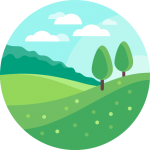Blowin’ in the Wind
In 1962, Bob Dylan composed the song Blowin’ in the Wind. In 2004, Rolling Stone magazine identified it as one of the greatest songs of all times (Rolling Stones, 2011). The song presents Dylan’s realization that truth is everywhere, and those who stop to observe and look for it will find it.
In Dylan’s own words,
“There ain’t too much I can say about this song except that the answer is blowing in the wind. It ain’t in no book or movie or TV show or discussion group… Too many of these hip people are telling me where the answer is but oh I won’t believe that. I still say it’s in the wind and just like a restless piece of paper it’s got to come down some… But the only trouble is that no one picks up the answer when it comes down so not too many people get to see and know… and then it flies away…” (Source).
This comment by Bob really intrigued me, because he is saying the best education you can get is not found by reading my book, going to school, or talking to somebody who knows a lot, but the best education you can find is learning to open your eyes and watch what’s going on around you.
 Take, Albert Einstein. He invented the theory of relativity—it changed science and technology forever. Many people don’t realize that Albert Einstein found this idea by sitting and watching nature. Many people don’t realize that he worked as a patent clerk, but he learned to do his job very quickly. Every day, he finished his work in a few hours and then spent the rest of his time working out his own ideas. One of those ideas became the Theory of Relativity.
Take, Albert Einstein. He invented the theory of relativity—it changed science and technology forever. Many people don’t realize that Albert Einstein found this idea by sitting and watching nature. Many people don’t realize that he worked as a patent clerk, but he learned to do his job very quickly. Every day, he finished his work in a few hours and then spent the rest of his time working out his own ideas. One of those ideas became the Theory of Relativity.
To find answers, you don’t need an expensive program. You don’t need to go to a prestigious college. All you have to do is learn to open your eyes.
Why do some people see more than others?
People don’t always see the same things. For example, I remember when I was a professor at Arizona State University, I would often go talk to students I knew were having a difficult time. One time I went to talk to one such student, and afterwards my TA asked me, “How did you know that that student was having a rough day?” I said, “Didn’t you see the student? His clothes were wrinkled, like he just took it them of a gym bag; he was wearing shoes, but no socks; his hair was messy.” Just by looking at him, I could tell this person was having a rough day. But my TA didn’t see any of that.
How can I learn to see more?
 I learned this from my father. My father and I travel all over the world giving presentations and doing work for large organizations. When we travel, I notice that my father pays attention to everyone. In fact, whenever we board an airplane, we end up sitting next to someone my father has already noticed or talked to in the terminal. This always amazes me.
I learned this from my father. My father and I travel all over the world giving presentations and doing work for large organizations. When we travel, I notice that my father pays attention to everyone. In fact, whenever we board an airplane, we end up sitting next to someone my father has already noticed or talked to in the terminal. This always amazes me.
I recently asked my father why this always happens. He told me that he likes to look for anything that seems unfamiliar to him. He looks for people doing things differently than he does and he tries to sit by that person or talk to that person. This helps him develop the ability to look at someone and quickly figure out what was in that person’s mind or what they’re going through.
Weekly Challenge
 Your challenge is to learn to observe and pay attention to things around you. It could be waiting in grocery line. It could be in a meeting or even at home with your family. Learn to lift your head up, and instead of just being enveloped in whatever you’re doing, learn to look at other people. Watch what’s going on around you, and when you see something out of the ordinary, or something that you didn’t think should happen, go and talk to that person.
Your challenge is to learn to observe and pay attention to things around you. It could be waiting in grocery line. It could be in a meeting or even at home with your family. Learn to lift your head up, and instead of just being enveloped in whatever you’re doing, learn to look at other people. Watch what’s going on around you, and when you see something out of the ordinary, or something that you didn’t think should happen, go and talk to that person.
Go and figure out what’s going on. And you will find that you will quickly gain the ability to open your eyes, and to be able to see reality and what’s going on. Good luck this week! Thank you so much for joining me. We’ll talk to you later! Bye
Subscribe to this Blog Series:
In Search of Truth is an independent publication by Dr. Jacob Kashiwagi. All proceeds are donated to the Leadership Society of Arizona 501(c)3 nonprofit organization.
The views expressed in the book are based on independent research and personal experience. This publication does not necessarily represent the views of LSA.


